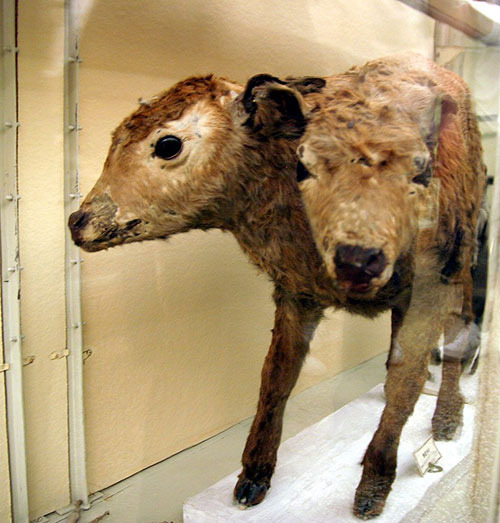Monthly etymology gleanings for May 2014
As usual, many thanks for the letters, questions, and comments. I answered some of them privately, when I thought that the material would not be interesting to most of our readers. In a few cases (and this is what I always say) I simply took the information into account. My lack of reaction should not be misunderstood for indifference or ingratitude.
Spelling Reform
As could be expected, the question about what to do with spelling has attracted considerable attention. I view our discussion with a measure of wistful concern. If a miracle happened and tomorrow someone said that society wants to reform English spelling, we would begin fighting among ourselves and never come to an agreement. We would behave like all revolutionaries in the world: there would be Bolsheviks/Montagnards (“All at once,” “Off with his/her head,” and the Kingdom of Heaven on earth built according to the first five-year plan), Mensheviks/Girondists, and the rest. In this discussion I represent only myself and prefer to stick to several propositions, not because they are supported by some profound linguistic theory, but because in all scholarly work I am more interested in results than in methodology, though I understand that without methodology there can be no results. This attitude comes from observing half a century of linguistic research, mighty long on theory and woefully short on memorable achievements, except for producing an army of tenured faculty.
So here are my propositions.
The public will not accept a radical break with the past, so that, if we hope to get anywhere, we should work out a step-by-step plan and try to implement the reform gradually. I witnessed the fury of the opponents of a moderate spelling reform in Germany and the horror of the conservatives when a couple of hyphens were introduced in Russia about fifty years ago. “Step by step” should be defined. I only say: “Look well, O Wolves” (no trouble finding the source and context of this quotation).
Phonetic spelling is out of the question. The base (the Roman alphabet) should remain untouched. Transcription as a teaching tool is fine, but it has nothing to do with our goal.
The first steps should be extremely timid, almost unnoticeable, for instance, replacing sc in words like unscathed with sk, abolishing a few especially silly double letters, perhaps tampering with such low frequency bookish words as ph thisis and ch thonic, and so forth.
Once the public agrees to such innocent changes (assuming that it does), we may perhaps go on. Here is a list of other painless measures: Americanize words like center, color, program, dialog, canceled (this experiment has been tried, so that such forms are by now familiar on both sides of the Atlantic) and the suffix -ize; abolish some superfluous letters: acquaint, acquiesce (or acquiesce), g nash, k nock, intricate, and so it goes. My order is arbitrary, and the examples have been given at random.
At present, we have to find influential sponsors among publishers, journalists, politicians (especially those who deal with immigration), and lexicographers. So far, despite my plea, no one from the staff of our great dictionaries has participated in the discussion. Perhaps our best bet is to get publishers interested: after all, it is they who produce books. If someone knows whom to approach and how to begin, don’t keep your information secret. Under a bushel candles are invisible.
A word of thanks
I have never been able to understand how Stephen Goranson finds things. But the fact remains that he does. Many thanks for the references to pedigree and many others!
Why do words change their meaning?
To answer this question I need a thick volume titled Historical Semantics. Unable to provide such a volume in the present post, I’ll give two examples from our recent experience. Everybody knows that kid is a young goat and a child. The sense “child” appeared much later. It was first slang and then became a regular item of everyday vocabulary, though we still say that so-and-so has no children or that children under five are not admitted, rather than kids. Since we more often speak about young boys and girls than about young goats, dictionaries now sometimes list the sense “kid” before the original one. A person who is twenty years old is no longer a kid except when he (probably always a he) burns tires or throws bottles at cops. Then newspapers speak about drunken kids who misbehaved after their team had lost (or won). Hence a new meaning: kid “a criminal of college age.” We seldom notice how such shifts occur.
Here is another example. A correspondent has recently thanked me for a short and concise answer to his question. I was not surprised, for I had been exposed to this usage before. Concise (which means “brief, condensed,” as in A Concise Dictionary) has been confused with precise; hence the change of meaning. The correspondent was undoubtedly grateful for my “short and precise” reply.

Not particularly unique.
Very unique
In a way, this is a continuation of the previous rubric. Another correspondent expressed his dismay at the phase given above. Very unique has been ridiculed more than once in my posts. Not long ago, I ran into the phrase particularly unique and rejoiced: here is something new. But, to make sure that I was not reinventing the wheel, I Googled for particularly unique: thousands of hits! Obviously, unique has almost lost its sense “one of a kind” and come to mean “unusual; exceptional.” We may rage, the way the heathen always do; however, the world will take no heed of us. A similar catastrophe has befallen the verb decimate “kill every tenth in a group.” Now it means “kill a large part of a group.” The etymology of both unique and decimate is still transparent (compare all kinds of uni- words, unicum, and decade). When the origin of the word is forgotten, it is even easier to fall into a semantic trap. But then this is what traps are made for.

Rather unique?
Hubba-hubba, copacetic, and gook: their etymology
A correspondent sent me a letter with suggestions about the origin of those three words. His letter is too long to copy here, so I would be glad if he posted his remarks as comments. He is aware of my post on hubba-hubba (March 5, 2008) but missed the one on copacetic (“Jes’ copacetic, boss,” July 5, 2006). Like many of his predecessors, he believes in the foreign origin of those three words. Here I should only say that the Hebrew etymology of copacetic has been refuted quite convincingly, but the main problem with borrowings is this: If we believe that an English word has been taken over from another language, we should show under what circumstances, in what milieu, and why the process took place.
Family names like White and Black
Walter Turner has already clarified this point in his comment. I can only add the name Green and say that I lost faith in human decency after I discovered the family name Heifer. Meet the Heifers!
Agreement the American way
(By the Associated Press) “Russia is one of the few countries in the world that harbor vast reserves of the untapped hydrocarbons.” This is perhaps a borderline case. One can argue that harbor goes with countries in a legitimate way. But this is probably not what was meant. After all, Russia is one of the countries that harbors…. Never mind what it harbors. It is only grammar that interests us. Right?
Triggering the world and explaining individuals, or how university administrators write
“It’s just a process to have that individual come into the office so they can be explained their rights and they can understand the process better.”
[Ms. X urges Mr. Y] to re-evaluate “rules and regularities that allow outside community members to so heavily trigger and target students and faculty on this campus.” That is why administrators are paid so well. Who else would try to explain inexplicable individuals or try to so gracefully and without compunctions split an infinitive for the sake of triggering and targeting students and faculty? Unique examples? Not particularly.
Anatoly Liberman is the author of Word Origins And How We Know Them as well as An Analytic Dictionary of English Etymology: An Introduction. His column on word origins, The Oxford Etymologist, appears on the OUPblog each Wednesday. Send your etymology question to him care of blog@oup.com; he’ll do his best to avoid responding with “origin unknown.” Subscribe to Anatoly Liberman’s weekly etymology articles via email or RSS.
Subscribe to the OUPblog via email or RSS.
Subscribe to only language articles on the OUPblog via email or RSS.
Images: 1. Monstre by Rama. CC-BY-SA-2.0-fr via Wikimedia Commons. 2. Two-headed California Kingsnake by Jason Pratt.
The post Monthly etymology gleanings for May 2014 appeared first on OUPblog.









 Related StoriesSmall triumphs of etymology: “oof”Little triumphs of etymology: “pedigree”Casting a last spell: After Skeat and Bradley
Related StoriesSmall triumphs of etymology: “oof”Little triumphs of etymology: “pedigree”Casting a last spell: After Skeat and Bradley
Oxford University Press's Blog
- Oxford University Press's profile
- 238 followers



